The Daymake EC1 (electric, carbon, first edition) is an affordable, light weight ebike built around a carbon fiber frame. It debuted on Kickstarter in late 2015 for $899 and met its funding goal with $70k+ in sales but the standard product has since jumped in price to $1,899. There is a bit of confusing linking going on from Kickstarter back to the official site and then back to Kickstarter again… so here’s the official order page if you’re interested. Price point is a major consideration with any purchase but especially at the $1k+ level for a semi-discretionary purchase. It’s so important in fact, that it’s one of the three core tenants that went into designing the EC1 which were highlighted by its designer Mike Chow in their Kickstarter video (along with light weight and easy convertibility into a traditional bike). At the low end, the EC1 is now $1,899 but you can spend up to $3,499 for the pro model which features a carbon wheelset, carbon fork, carbon bars and carbon seat post along with a larger and more powerful 36 volt 7.8 amp hour battery pack with premium Samsung cells. There’s a lot to digest here… which model is right for your needs? Is it worth the higher price point? When can I expect to have it delivered? I’m going to work through some of these details but the units I saw and tested in Toronto at Daymak’s headquarters were pre-production so even my best insights may fall short or be misleading in the face of the post-Kickstarter edition. Overall, what I rode was a light weight, cool looking road bike with a modest geared hub motor on the front wheel and a generic LCD display panel. At the ~$1,000 price point it felt like a great deal but given the weaker 24 volt battery found on the Standard EC1 I think I’d be more inclined to upgrade to the Advance and get more power with the 36 volt pack as well as lighter, smoother carbon rims.
250 watts is not considered large in the US when it comes to motor ratings. It’s light weight, efficient and affordable… it’s the standard in parts of Europe where more restrictive electric bike laws have been adopted and it’s more energy than competitive cyclists produce over long rides so it’s nothing to scoff at. For an ebike like the Daymak EC1 it’s pretty solid and because this motor is mounted in the front wheel vs. the rear, I appreciate the lighter weight build because that reduces the impact it has on steering. Because the Standard and Advance EC1 feature suspension forks, there is also an increase in the unsprung weight of the front wheel based on this motor design but it’s not enough to break the fork in my opinion. I’m not sure on the fork brand but what I saw was a more generic aluminum alloy build that adds comfort when paired with the carbon fiber frame.
The battery pack options are also rated on the modest side in my view. The Standard pack only delivers 24 volts of power with 10.4 amp hours of capacity and is made by GEB. It offers enough to get around town on paved relatively flat terrain but probably won’t pull you up steeper hills without a bit of rider input. When you upgrade to the Advance or Pro models you get a more standard 36 volt pack but it only offers 7.8 amp hours of capacity which I would consider low. Daymak estimates the EC1’s range to be between 15 and 20 miles and this matches what I’ve seen and experienced on other electric bikes. The larger 700c wheels, hybrid/slick tires and overall light weight of the bike contribute to improved efficiency. I would normally complain about the physical discomfort of road style ebikes traveling at higher speeds over longer distances but the suspension fork, carbon fork (on the Pro model) and carbon frame really improve the ride quality here. It’s not a mountain bike and I would still avoid cobblestone roads but it’s a big step up from Aluminum alloy.
With the EC1 you get pedal assist (five levels), a trigger throttle and a removable battery that truly deliver a bicycle + electric bicycle experience. You don’t need to ride in power mode to have a good time and as a medium-weight sort of guy I appreciate how easy it is to lift and transport when you remove the pack and take off the wheels using quick release. While I’m a bit bummed about the huge price increases after the Kickstarter campaign, I do understand that the materials involved here aren’t free. This isn’t a premium ebike however as the derailleur used is a Shimano Tourney TX (the lowest rated derailleur Shimano makes). You get 21 speeds overall and that’s great for city and road cycling but this isn’t truly a road bike. If price were no issue I’d be super excited for the Pro model because it’s one of the only electric bikes I know of that offers drop bars and I love the multiple positions they enable. The other model with drops is the Haibike XDURO Race (though it costs $6,700 vs. $3,400 here and it weighs more) and Haibike also makes a carbon frame model along with Easy Motion called the Neo Carbon. Daymak is creating something truly unique here and I do appreciate the effort, just like their solar powered kick scooter and Beast off-road cycle this is a product that stands out from the crowd.
Pros:
- Carbon fiber frame keeps the EC1 light weight and help to reduce jitter and vibration while riding over rough terrain (it feels better than Aluminum alloy frames in my opinion)
- The battery pack has been mounted with four screws verses just two as I see on many Steel and Aluminum frames, this is to improve strength and reduce point pressure which can crack Carbon more easily
- Value priced at ~1,000 when it first launched on Kickstarter… now retailing between $1,899, 2,399 and $3,499 depending on the options and setup you choose (Standard, Advance or Pro)
- If you upgrade to the EC1 Advance model you get deep dish carbon fiber rims along with a more powerful 36 volt 7.8 amp hour battery pack with Samsung cells, and if you upgrade to the EC1 Pro model you get carbon rims, a carbon rigid fork, a carbon seat post, carbon handlebar extensions and a drop bar setup and the same upgraded 36 volt 7.8 amp hour battery with Samsung cells (the EC1 Pro model weighs roughly eight pounds less than the Standard)
- Very few electric bicycles offer drop bars like you would see on road bikes, these allow you to lean forward further and become more aerodynamic as a rider while also swapping to the hoods for a upright body position or standard flat across like you’d find on a city bike, this drop bar is only available on the EC1 Pro model, the only other ebike I know of that offers drops as of this review is the Haibike Race
- By removing the battery pack you reduce the overall weight by around seven pounds and can ride the EC1 with pedal power fairly easily, it’s more like a standard bicycle in this sense, removing the battery also makes it easier to load onto a rack or car
- The frame is purpose-built to work with an electric drive system so the cables are all run through and it looks fantastic vs. cluttered and piece-meal
- The trigger throttle can override pedal assist which is great for maximizing range and getting a workout but still being able to pass fellow riders or top a hill without changing gears
- I believe the final frame features rear rack bosses so you can add a carry rack and use this bike for commuting or other utility based rides like grocery shopping
Cons:
- The motor only offers 250 watts nominal which is a bit lower than most of the ebikes I test in the US at 350+ but this reduces overall weight, complimenting the carbon fiber frame, the motor is also mounted in the front wheel vs. rear which can impact steering (not as big of a deal with such a small and light motor here), given the larger diameter 700c wheelset used on the EC1 the weaker motor also suffers from a mechanical disadvantage though it did perform alright during my test rides on flat paved roads
- Lower-end drivetrain components including Shimano Tourney TX derailleur (the lowest rated “Basic” level derailleur in their line), also lower-end suspension fork (basic Aluminum alloy)
- Only one frame size available for each of the three versions of this bike at ~22 in it’s on the large side (good for a more aggressive body position), it features a high-step diamond design which could be difficult to mount for some
- The official website is out of date, still advertising a $899 price (ending December 3rd 2015… and now it’s January 3rd 2016) that really stings considering the price has jumped up $1,000 to $1,899
- These are very minor gripes but pairing a front mounted hub motor with a suspension fork can sometimes impact travel (due to perpendicular forces pulling forward vs. the fork traveling up and down) and there are moments when loose terrain may cause the wheel to spin out due to less weight being applied to the front wheel vs. rear
- The EC1 along with many of Daymak’s other electric bikes are sold predominantly online (especially for US based customers) so test rides, returns and warranty work may be more difficult, there may also be some assembly involved
- Shipping for this ebike in Canada is ~$200 and ~$300+ for the US, they have a bunch of resellers in Canada and a handful in the US so this could be a way to save money, try to find it in person
- The saddle is a bit more firm and designed for active riding… the carbon seat post on the Pro model probably helps but that saddle is also labeled as “carbon” so I’m not sure how hard it is?
- The viewing angle on the LCD panel I tested can be limited, If you look at it straight on at a 90 degree angle it appears faded… I’ve had better look viewing it tipped forward
- No integrated bottle cage bosses on the seat tube and the downtube is completely covered by the battery pack, consider a saddle rail adapter like this
Resources:
- Official Website: http://www.daymak.com/ec1/
- Official Kickstarter Page: https://www.kickstarter.com/projects/867054068/daymak-ec1-ebike-carbon-fiber-electric-bicycle/description
- More Pictures: https://goo.gl/photos/tfRPR3kDCJhSg7Ur7

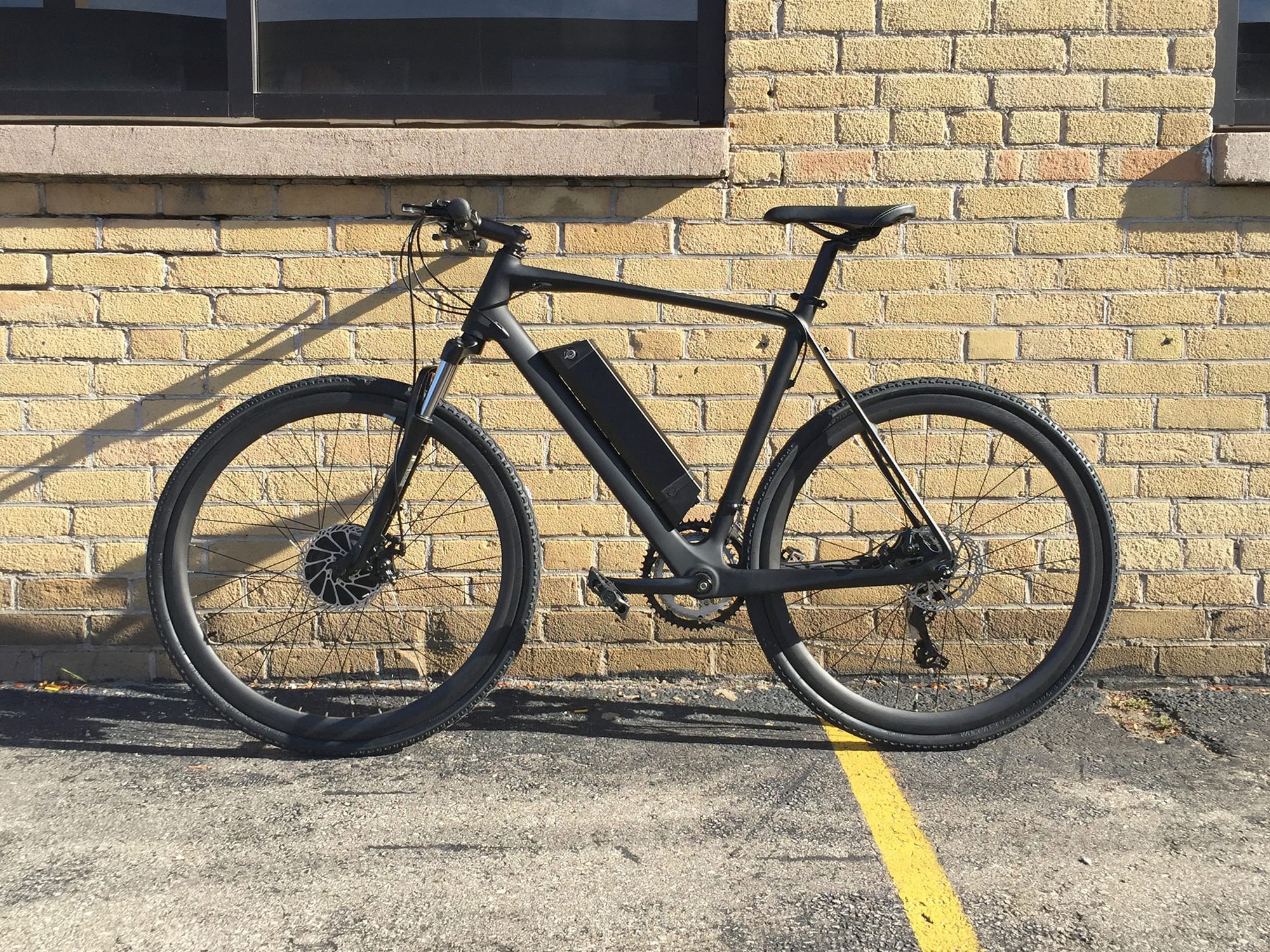
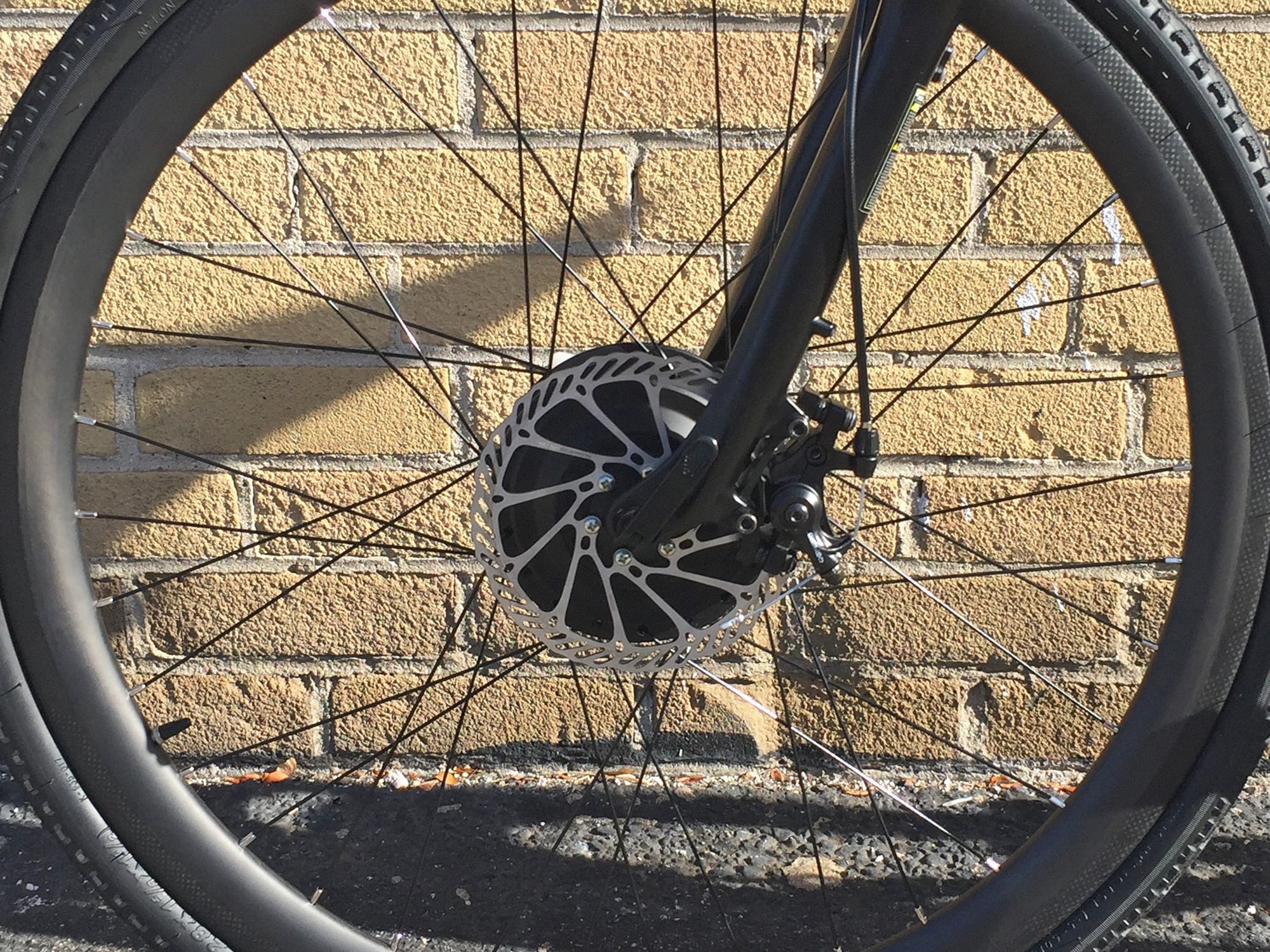
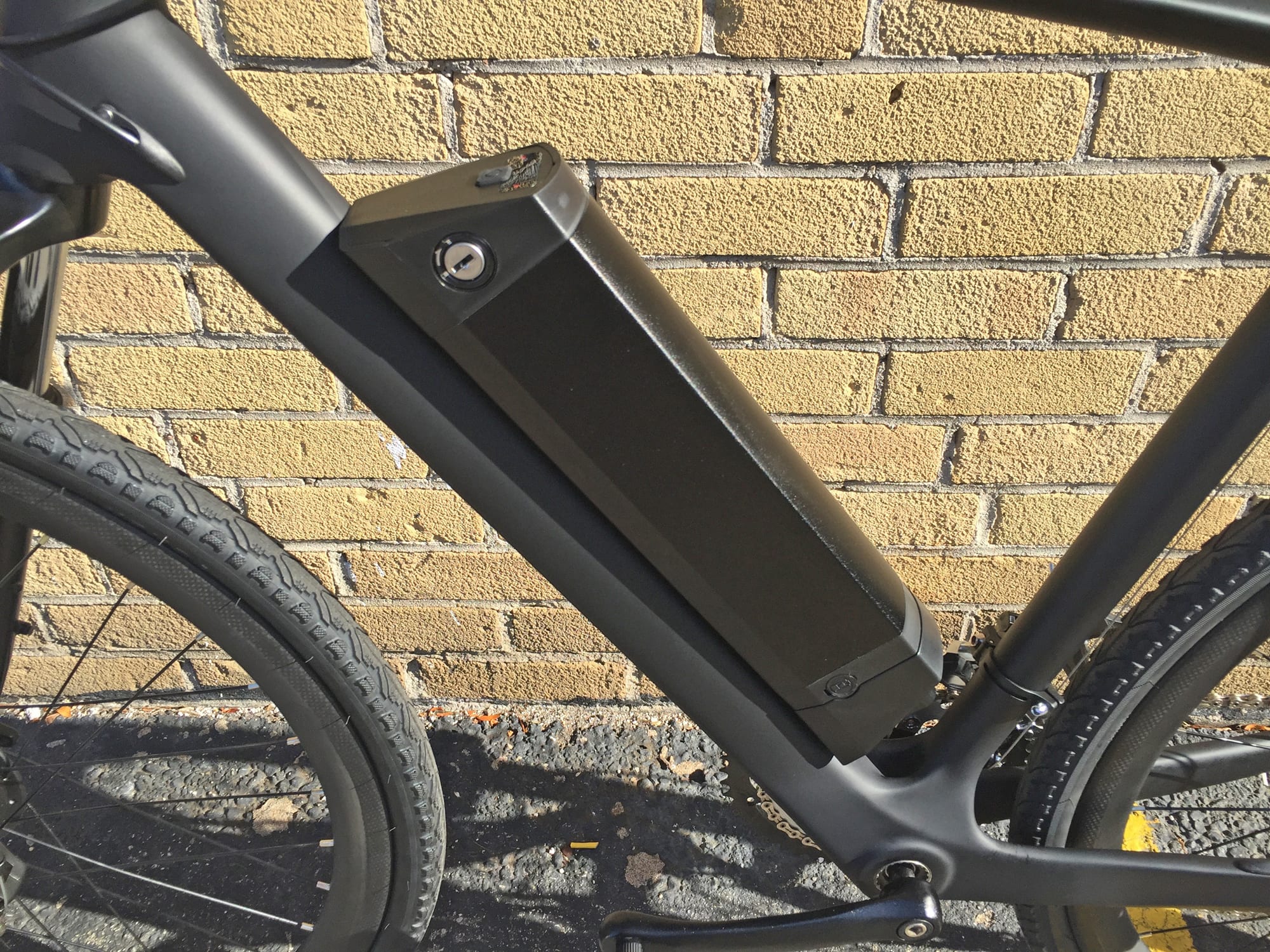

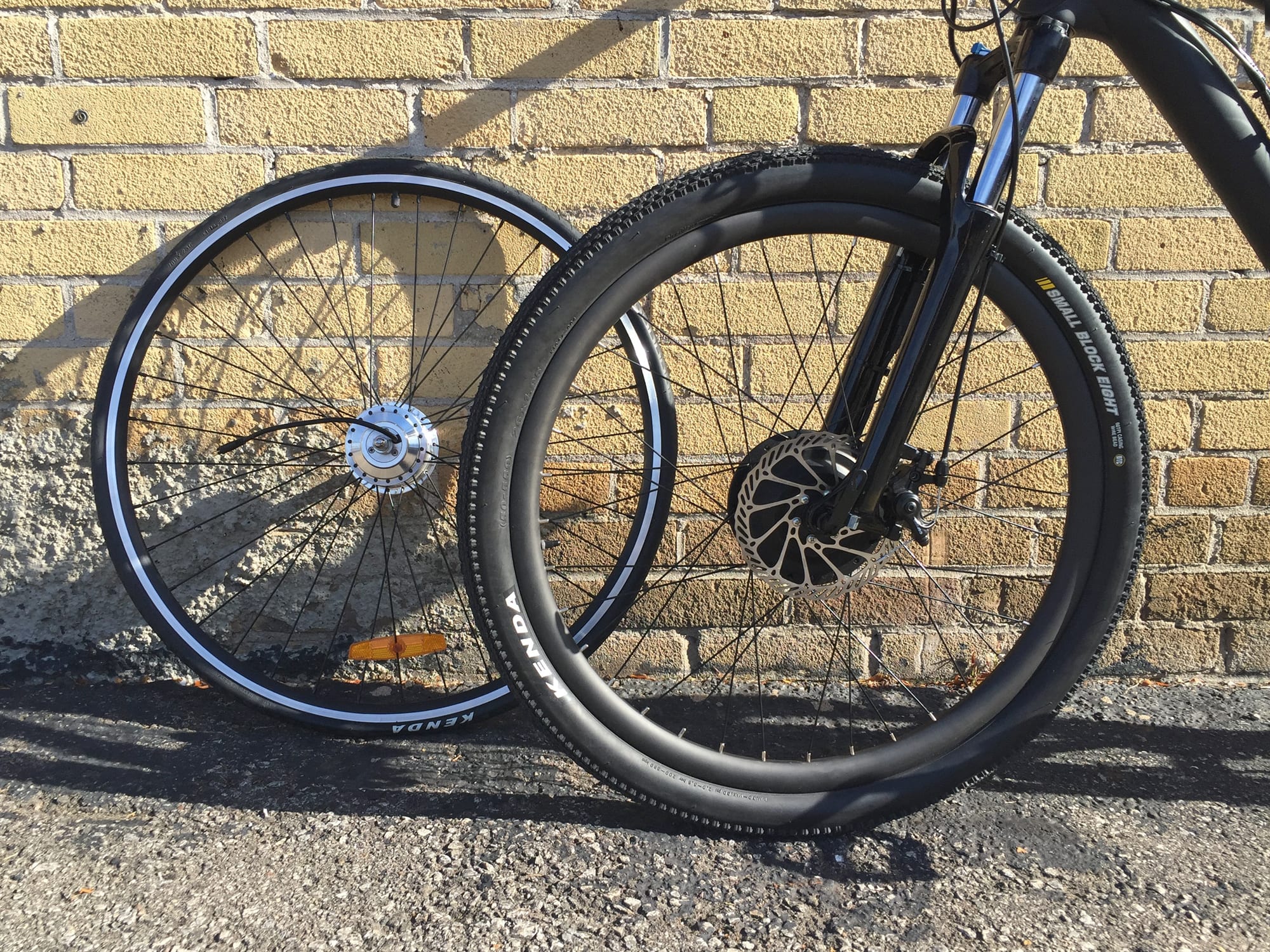
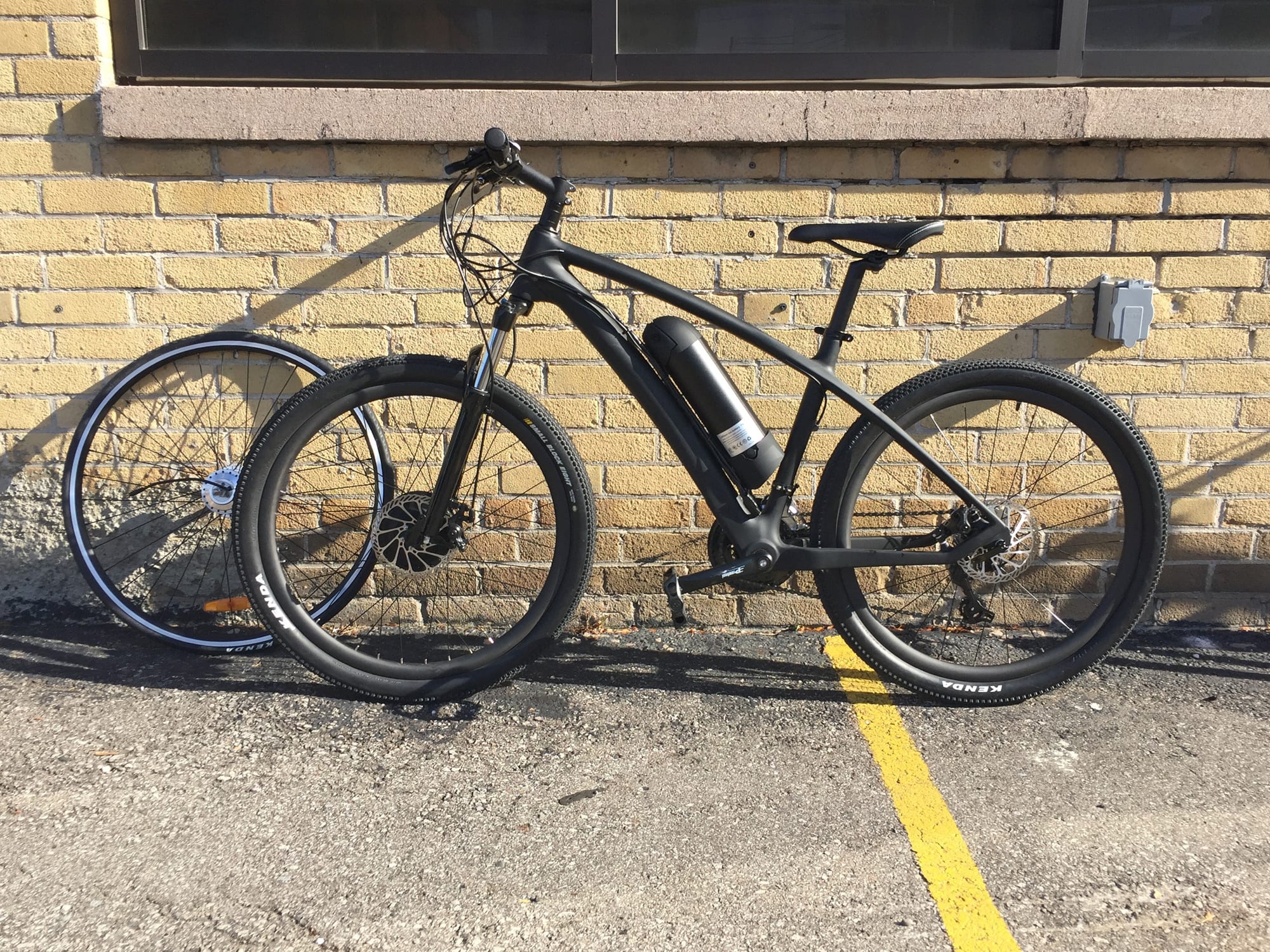


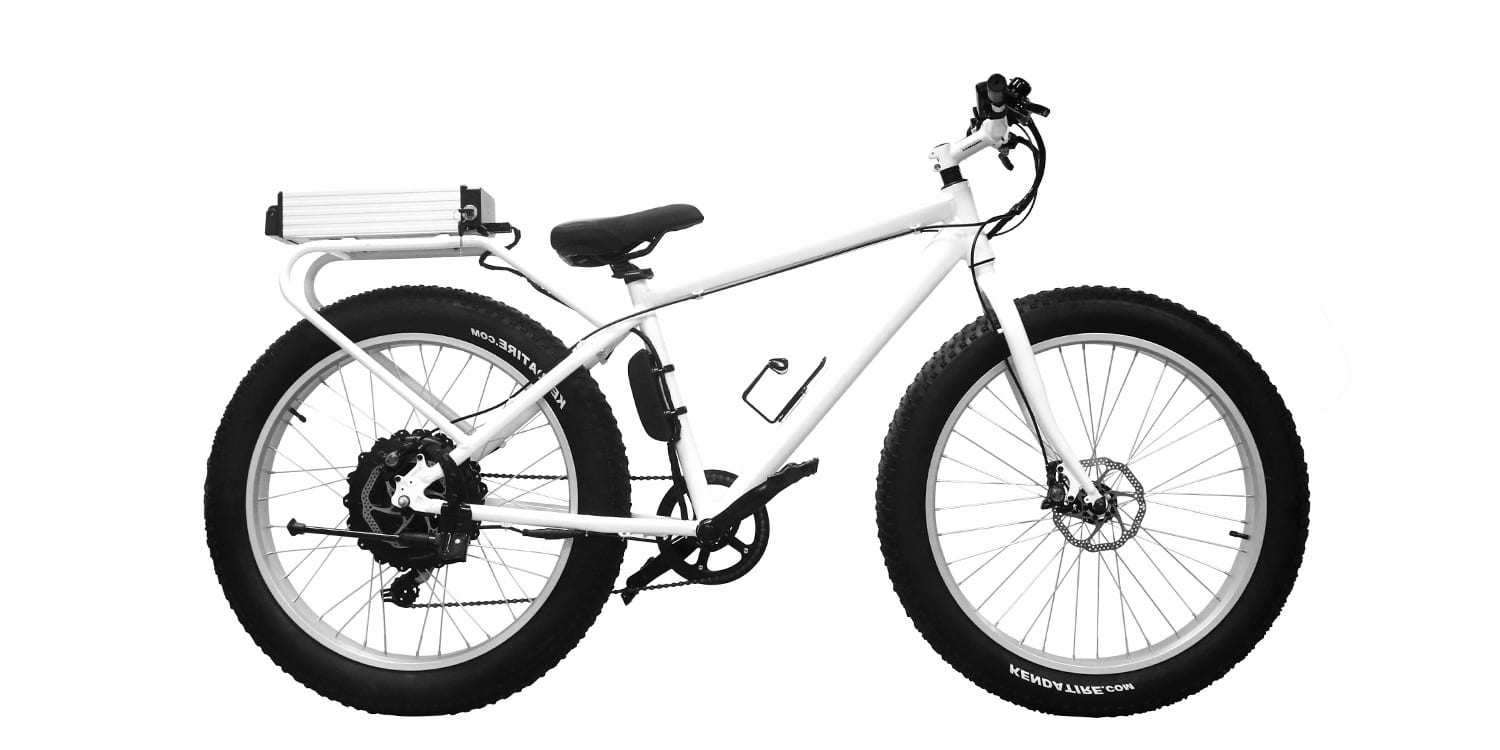
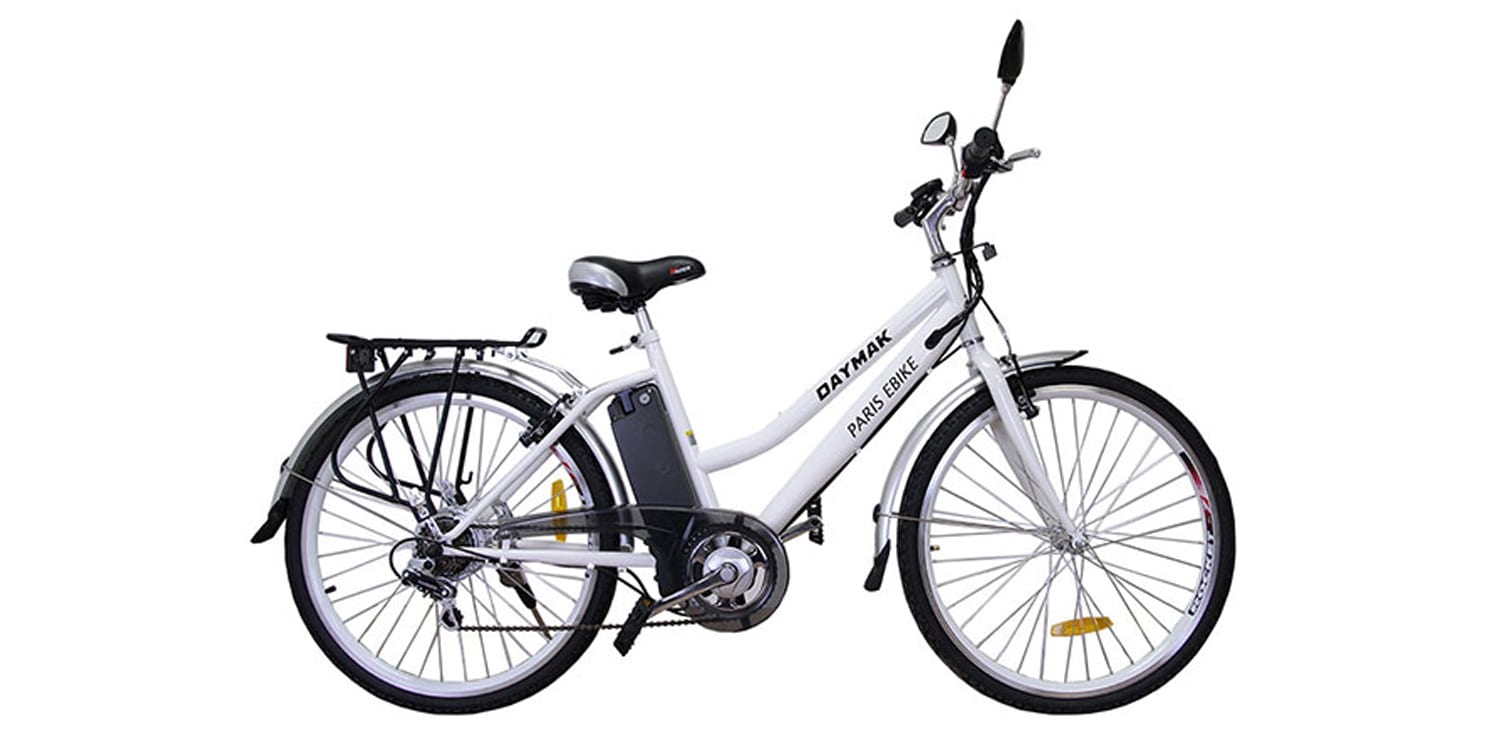
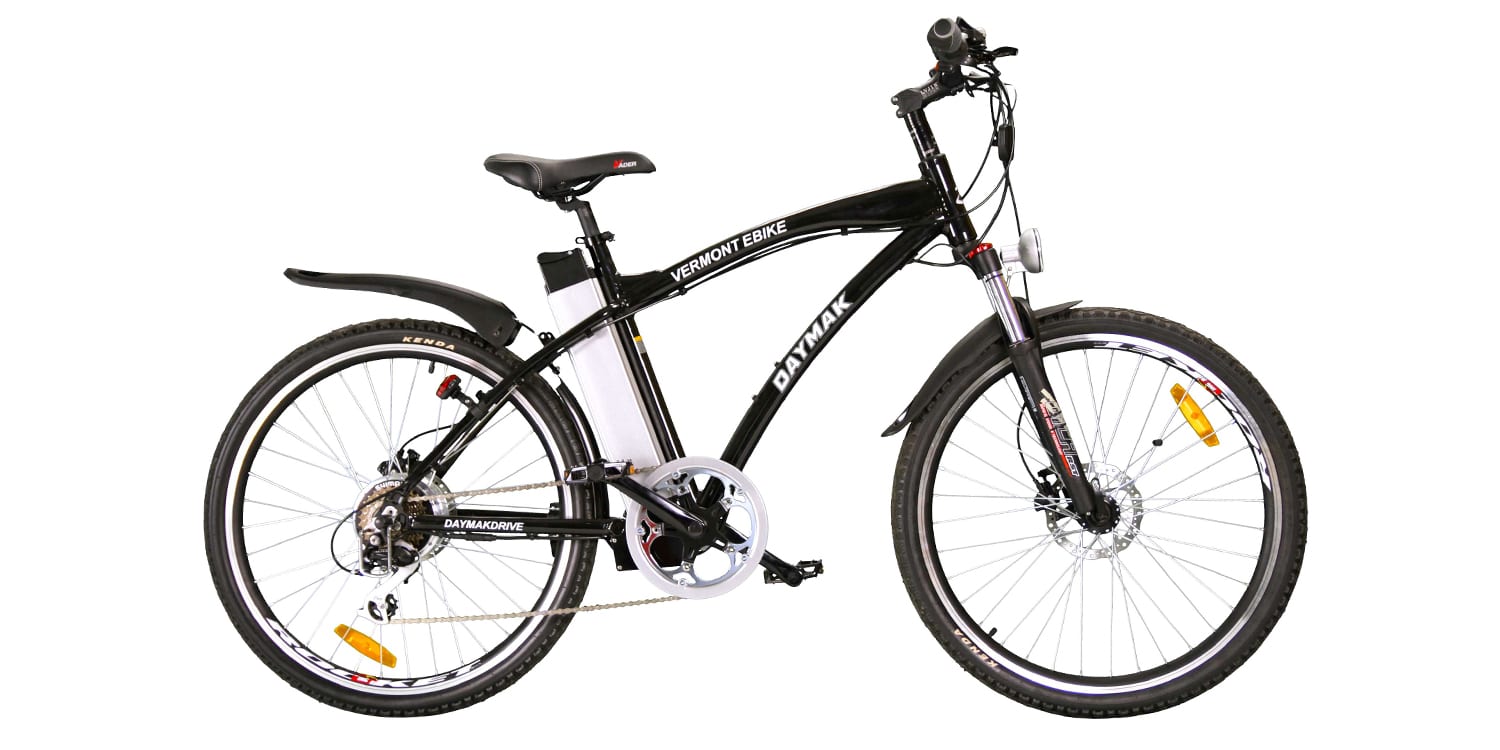
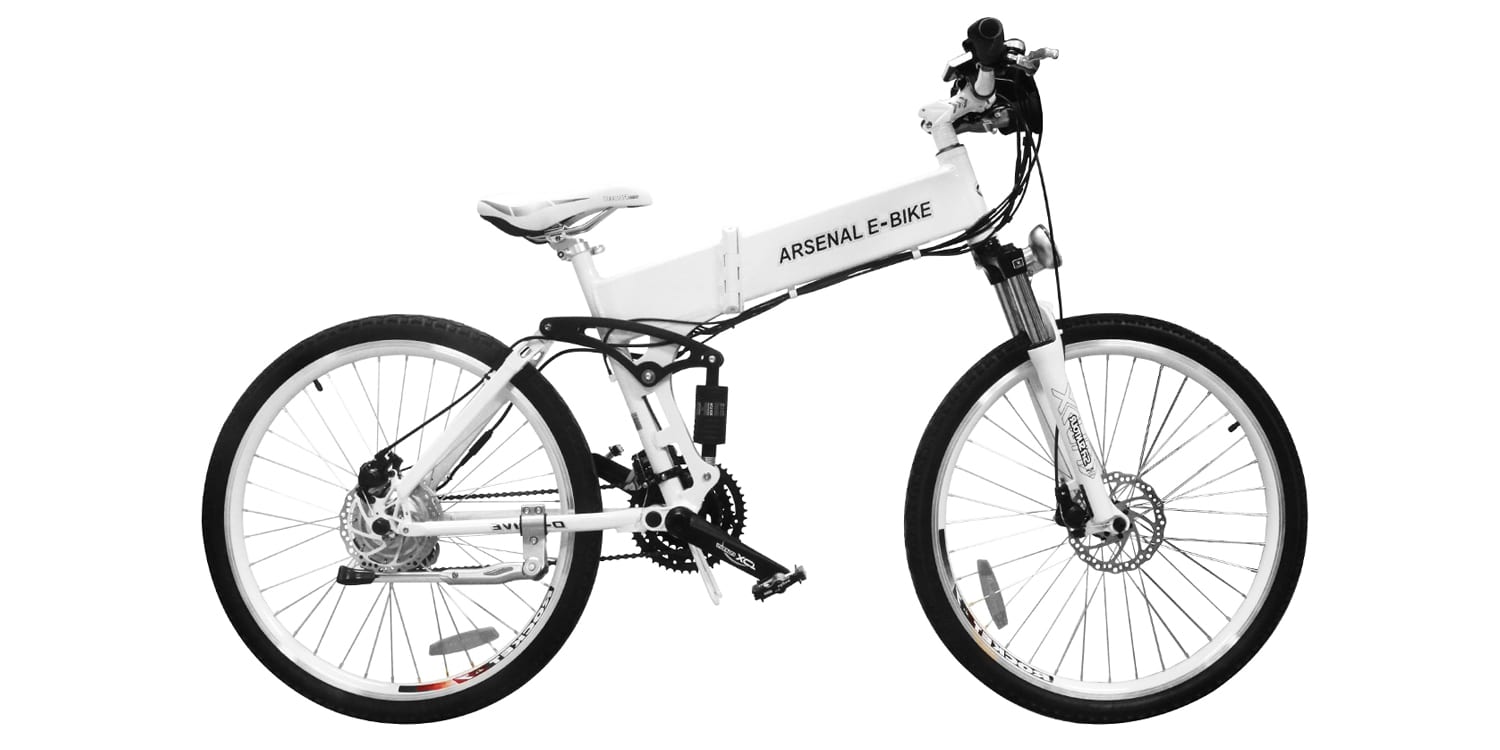
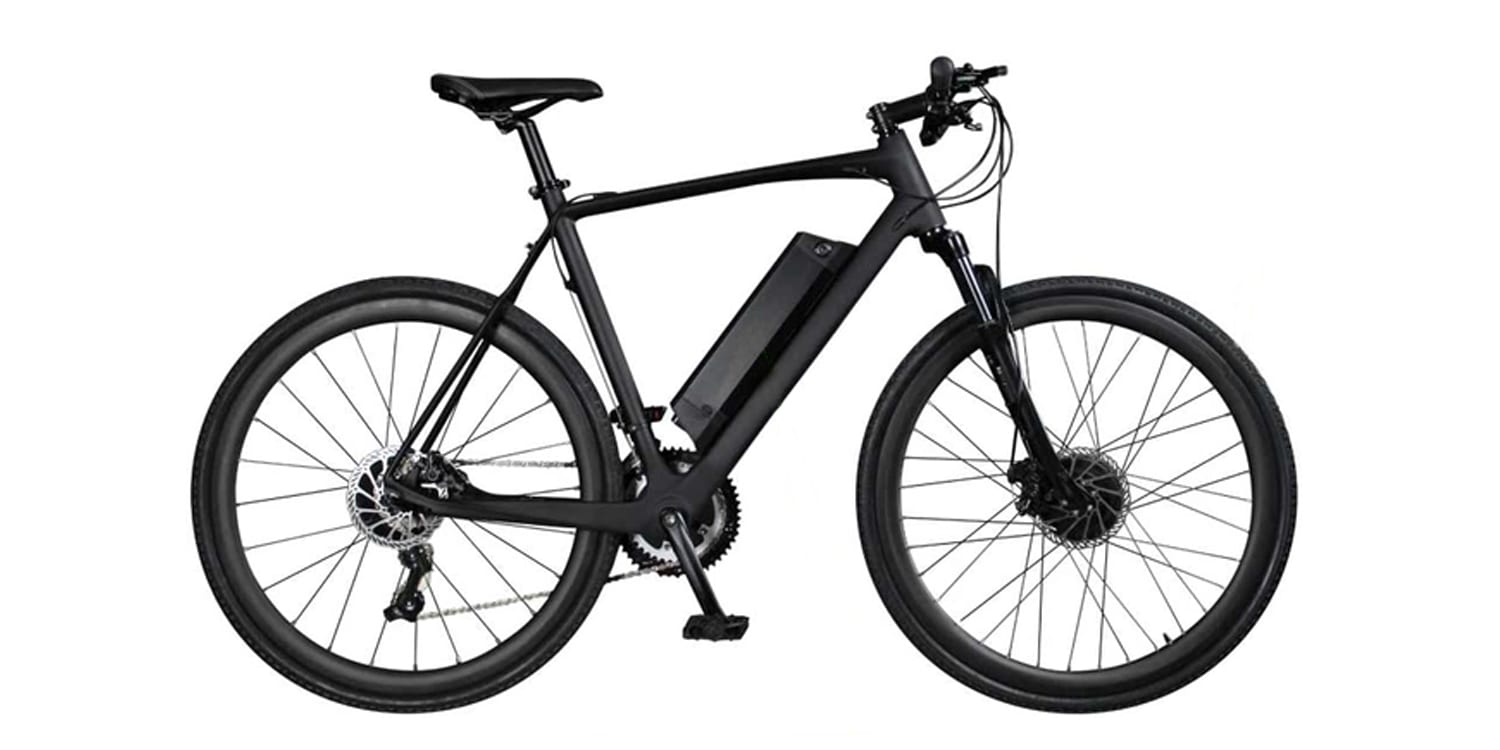


Jack says
Interesting product, Court, altho’ the pricing design goal now seems diminished. The first thing I thought of when watching your video review was Justin’s (Grin Tech) assertion – https://www.youtube.com/watch?v=IxB2j-egWcQ – that if rider’s replaced their theorizing with measurable data, they would find no reason to avoid a front hub motor. And he was speaking about larger/heavier DD motors! That general assertion seemed like a bit of a stretch…but then, he’s the engineer. The simplification of a front hub approach sure seems appealing, especially given the EC1’s light weight and ‘convertibility’ to a regular bike with a wheel swap, if that was important to the rider. Thanks for getting all the way to Toronto for this review, Court…altho’ those short sleeves tells me you weren’t there this winter!
Court Rye says
It was quite the flight getting out there! I drove a couple years back and that was fun… got to visit Montreal. I still don’t love front hub motors but I agree they are the easiest and most affordable option. For something like the EC1 it makes a lot of sense :)